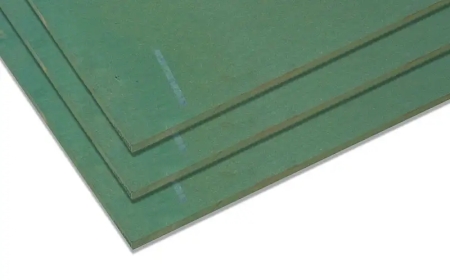Common Mistakes to Avoid After Knee Replacement Surgery
Avoid common mistakes after Knee Replacement Surgery in Jaipur. Dr. Lalit Modi at Jaipur Joints shares expert recovery tips for a faster, safer healing process.

Knee replacement surgery is one of the most effective solutions for individuals suffering from chronic knee pain, arthritis, or joint deformities. While the surgery itself is a major step, what truly determines the success of your outcome is how you manage the recovery phase.
At Jaipur Joints, Ive treated numerous patients undergoing Knee Replacement Surgery in Jaipur. And through my experience, Ive noticed that the most common complications or delayed recoveries are often not due to the surgery itselfbut due to avoidable post-operative mistakes.
Heres a comprehensive look at the common mistakes patients make after knee replacement surgery and how to avoid them for a faster, safer, and smoother recovery.
1. Skipping or Inconsistently Following Physiotherapy
Mistake: Many patients either delay starting physiotherapy or stop it halfway once pain reduces.
Why It Matters: Physiotherapy is crucial in helping you regain flexibility, joint strength, and normal walking patterns. Avoiding it can lead to stiffness and loss of motion.
What You Should Do: Begin physical therapy as soon as your surgeon advisesusually within 24 to 48 hours post-surgery. Stick to your schedule and do home exercises regularly.
2. Being Overly Sedentary
Mistake: Some patients believe complete rest will speed up healing, so they avoid walking or moving the knee.
Why It Matters: Prolonged immobility increases the risk of blood clots, joint stiffness, and muscle atrophy.
What You Should Do: With support, start walking short distances as advised. Simple leg movements and ankle pumps while lying down can also improve circulation early on.
3. Overexerting Too Early
Mistake: On the flip side, some patients become too activewalking long distances or climbing stairs before the joint is strong enough.
Why It Matters: Overuse can cause swelling, pain, or even damage the implant.
What You Should Do: Gradually increase your activity level under supervision. Listen to your body and never skip rest periods.
4. Neglecting Pain Management
Mistake: Many patients stop taking prescribed pain medications early, thinking it's best to tough it out.
Why It Matters: Pain can discourage movement and delay physiotherapy. In severe cases, it can lead to joint immobility.
What You Should Do: Follow your doctors prescribed pain management plan. Pain control helps you participate more actively in recovery.
5. Improper Wound Care
Mistake: Ignoring the surgical wound, removing bandages early, or exposing the area to moisture.
Why It Matters: Infections at the surgical site can be serious and may even require another surgery.
What You Should Do: Keep the wound clean and dry. Follow post-op instructions carefully and report any signs of redness, discharge, or foul smell immediately.
6. Ignoring Early Warning Signs
Mistake: Many patients overlook symptoms like calf pain, swelling, or fever.
Why It Matters: These could be signs of deep vein thrombosis (DVT), infection, or implant complications.
What You Should Do: Contact your surgeon without delay if you notice anything unusual. Timely intervention can prevent serious outcomes.
7. Avoiding Assistive Devices
Mistake: Some patients skip using walkers, canes, or crutches due to embarrassment.
Why It Matters: These tools help you walk safely and maintain balance while your joint heals. Not using them increases fall risk.
What You Should Do: Use assistive devices as recommended. Most patients transition to walking without support within a few weeks.
8. Skipping Follow-Up Appointments
Mistake: Once they start feeling better, many patients avoid scheduled reviews with their surgeon.
Why It Matters: Regular check-ups help your Joint Replacement Surgeon in Jaipur track healing progress, detect implant alignment issues, or adjust your therapy plan.
What You Should Do: Dont miss your appointmentseven if you feel back to normal.
9. Poor Diet and Hydration
Mistake: Ignoring nutrition and water intake during recovery.
Why It Matters: Proper healing requires adequate protein, vitamins, and hydration. Deficiencies can slow tissue repair and weaken your immune system.
What You Should Do: Eat a well-balanced diet rich in protein, vitamin C, iron, and calcium. Drink enough water to aid metabolism and prevent constipation due to reduced activity.
10. Unrealistic Expectations
Mistake: Expecting to resume all normal activities or sports within a few weeks.
Why It Matters: Full recovery from Knee Replacement Surgery in Jaipur takes timeusually around 3 to 6 months for most daily functions and up to a year for complete recovery.
What You Should Do: Be patient and celebrate small milestones. Discuss realistic goals and timelines with your physiotherapist or surgeon.
Conclusion
Avoiding these mistakes can make a significant difference in your recovery journey. With proper care, commitment to physiotherapy, and regular medical follow-up, most patients regain mobility and return to an active lifestyle after Knee Replacement Surgery in Jaipur.
At Jaipur Joints, I strive to guide every patient through every stagefrom pre-surgery consultation to full recovery. As an experienced Total Knee Replacement Surgeon in Jaipur, I believe that empowered patients heal better.
? Book an Appointment Today
If you're considering knee replacement or have questions about recovery, schedule your consultation at Jaipur Joints with Dr. Lalit Modi, trusted Joint Replacement Surgeon in Jaipur.





































